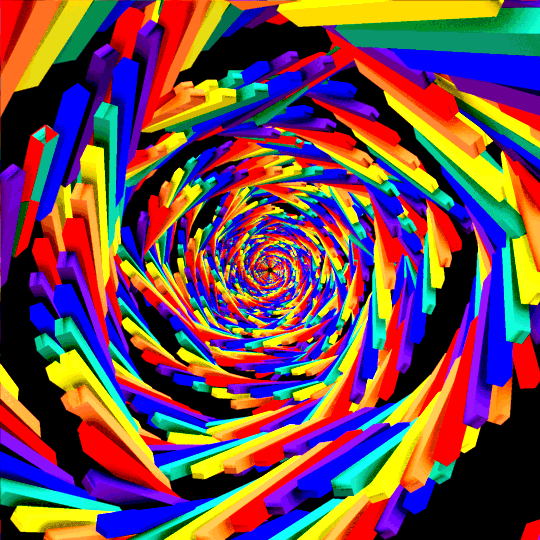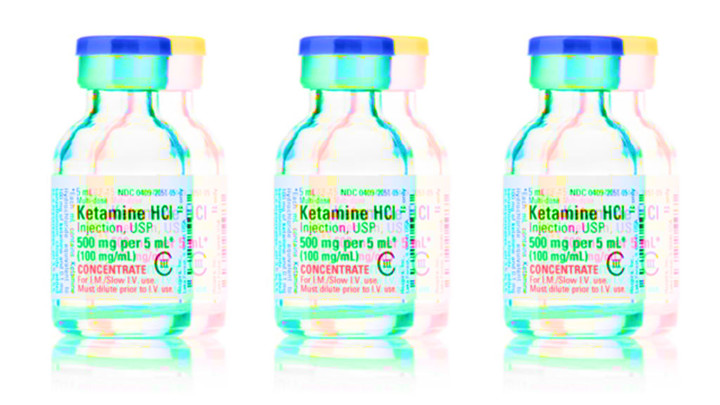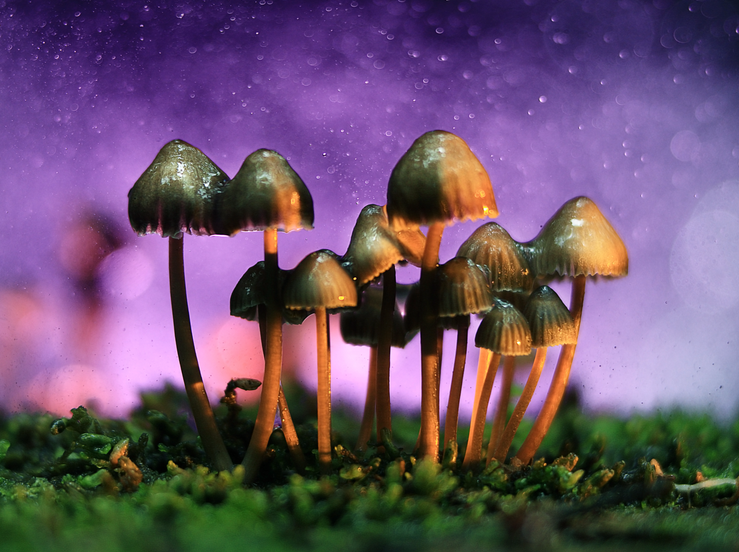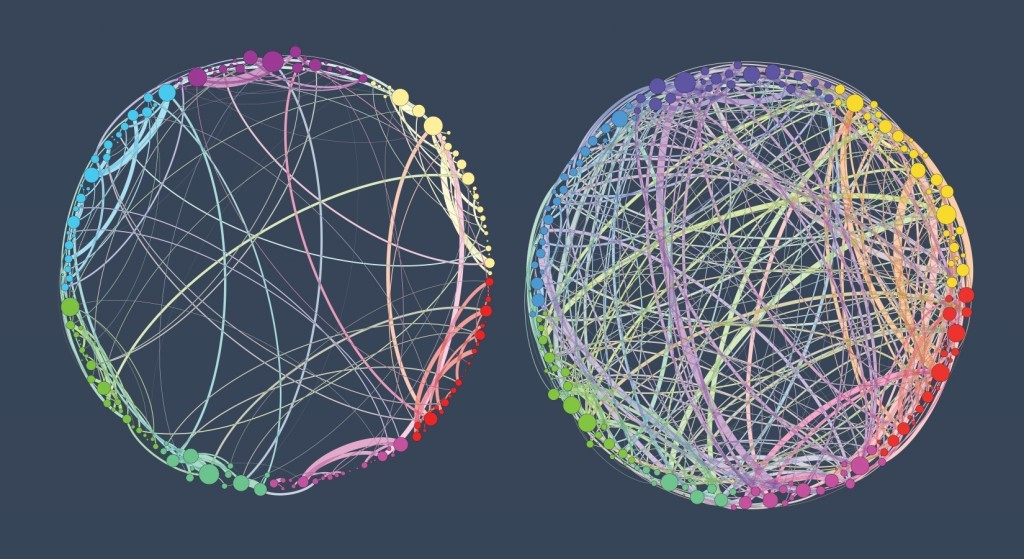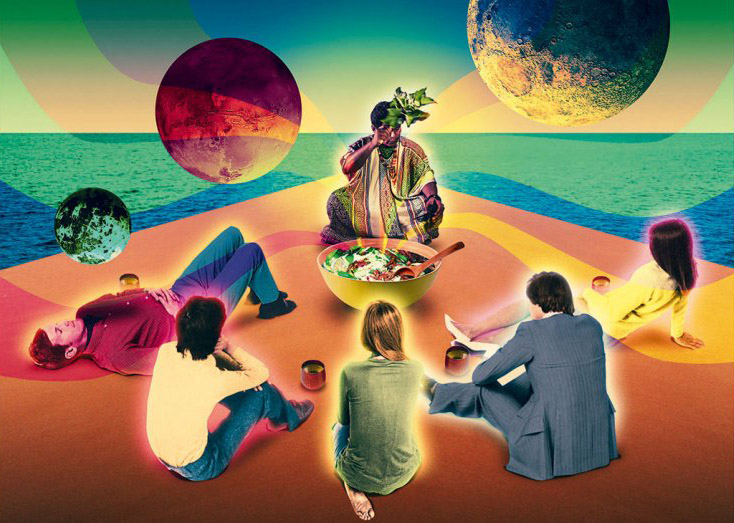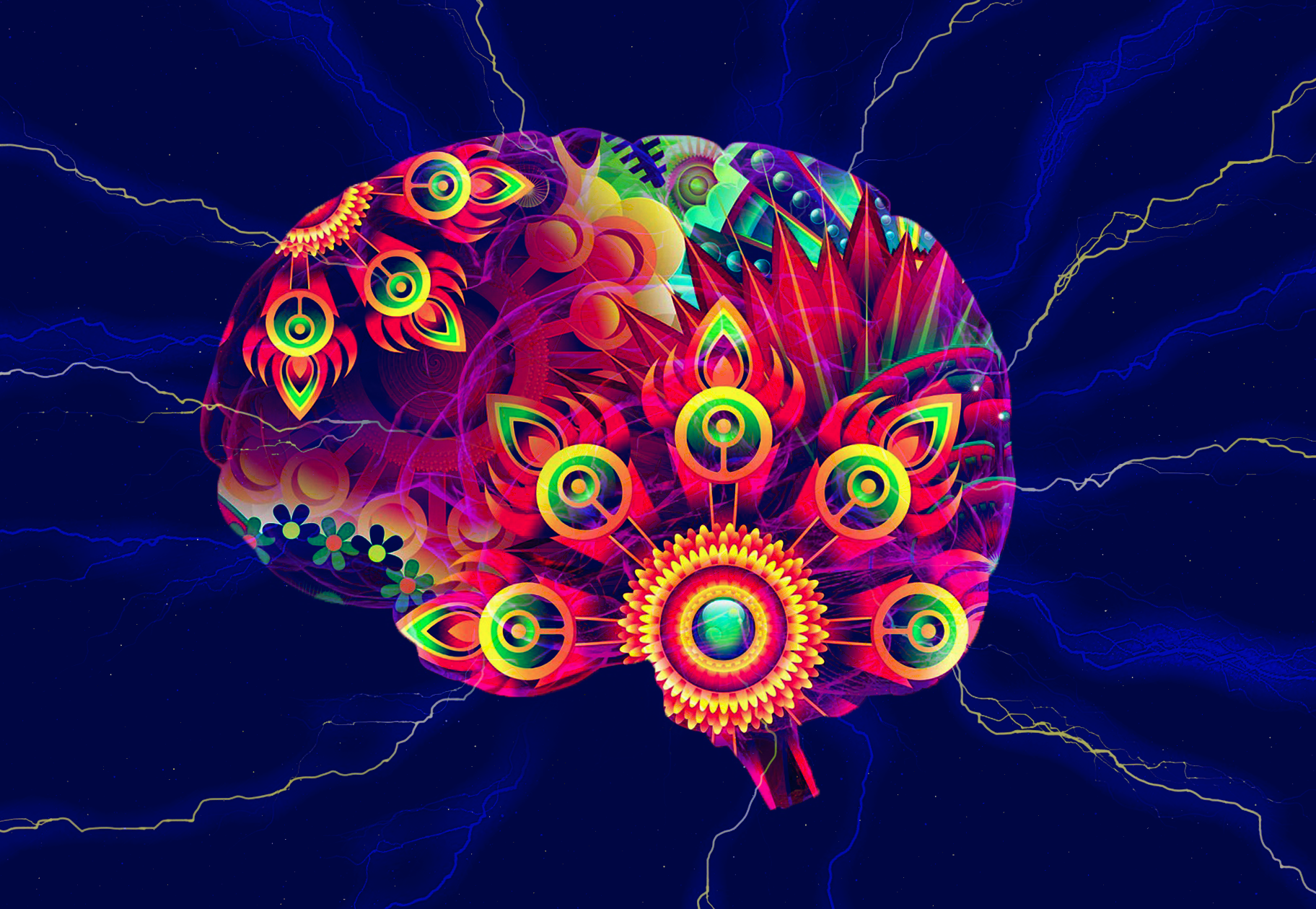Lord777
Professional
- Messages
- 2,577
- Reaction score
- 1,561
- Points
- 113
When a sore throat begins to sore, a headache creeps up or a finger is in the door, a modern civilized person has a quick and completely correct reaction: first remove the pain, then, if the cause of the pain is not obvious, find and eliminate it.
Soul hurts = leg hurts
When a sore throat begins to sore, a headache creeps up or a finger is in the door, a modern civilized person has a quick and completely correct reaction: first remove the pain, then, if the cause of the pain is not obvious, find and eliminate it. When it comes to a bad mood that turns into depression, our actions are usually not so timely and logical. “I'm just tired”, “everything is bad, probably this is karma”, “God is punishing me for yelling at a child”, “just people around are stupid and angry”, “the authorities have gone completely crazy, what to say about us, ordinary people "," it's just not my day, you can't be happy all the time "and other silly excuses prevent you from catching the moment when depression can be easily prevented. You don't think“ broke a finger, nothing, according to statistics,
Mental pain is the same breakdown in the body as physical. Being in a bad mood is just as abnormal as suffering from a aching tooth or a lumbago in the lower back.
Take a closer look at your mood, as an allergic person looks at flowers with suspicion. Emotions began to fail, but the mind remained with you. Let it work and depression, like a migraine, will be prevented at the precursor stage.
The body is like a kit of a young chemist
World culture is rich in descriptions of the subtle mental structure of a person. All this airy, divine and unknowable flatter the romantic natures and obscures from them the other side of the question - that all experiences are just tiny changes in the biochemistry of the brain. If you want to gain control over your emotions, it is useful to perceive the body cynically, like a scientific laboratory or a 24-hour restaurant with an absent-minded chef who can drip into a pie instead of a gram of vanillin and a gram of quinine and spoil dinner for all visitors with such a trifle.
A bad mood almost always means a chemical imbalance in the body.
Before finding out whether an external object (the death of a friend, a stain on a dress, gays were forbidden to vote) is the cause of this violation, or vice versa, your relationship with the world has deteriorated due to a malfunction in the body (hormonal shift, a lack of a trace element in the diet), you need to try to restore the formula of normal chemical balance.
First, as you already understood from the first paragraph, you need to act quickly. Secondly, mental repair should be a priority. To hell with the diet and the schedule, if you don't fix the problem now, later you will still eat a kilogram of marshmallows under the whiskey, staring blankly at the unfinished report. So, what you need to have on hand:
- fast carbohydrates: your favorite sweet, and best of all dark chocolate
- tablets like Magne B6 (preparations containing magnesium and B vitamins, on which the mood directly depends): eat four. If your job is stressful, eat eight a day in 2-3 meals. If there are no tablets, beer and smoked meats will do, they also contain the necessary substances. A Bavarian lunch with tiramisu for dessert should dampen the incipient melancholy.
Anti-anxiety drugs, such as over-the-counter afobazole
- alternative stimulants: if you constantly drink cola or coffee, replace it with mate, ginger, ginseng or eleutherococcus
- herbal sedatives such as persen. Yes, they put you to sleep. But they can be washed down with red bulls, if you do not do this systematically, nothing terrible will happen.
- nootropics (phenotropil, phenibut). The effect of phenotropil is best noticeable in the first dose, lethargy and gloom will be replaced by enthusiasm, you feel hungry, a side effect - instead of peace of mind, you can become even more nervous, so this is more of a one- time remedy. Many people develop tolerance to phenotropil in a few days. Phenibut has a more anti-anxiety effect; for a stable effect, it needs to be taken three 0.25 tablets a day for a week.
You need a stimulant or a sedative, decide for yourself, if everything is not clear, drink anti-anxiety (anxiolytics). There is a sedative glycine, which does not help everyone, but it costs a penny and reduces the craving for alcohol.
By the way, it is worth getting drunk in the only case - when the slide into depression is caused by a strong external stress factor (failure at work, parting with a loved one). The break drowns out the emotional memory of the event, which begins to be remembered more distantly, as a fact, plus the hangover has the effect of "when you cough, take a laxative, and the cough will cease to be your main problem."
Do not rush to rush to the cult Prozac (fluoxetine) - if you manage to get it without a prescription, remember that it begins to act as it accumulates, that is, at least after a week, and mixing it with alcohol causes absolutely hellish consequences for the psyche, including suicidal moods.
Parallel reality marathon
It's great if you are not a slave and if depression approaches, you have the opportunity to quit your job for the sake of therapeutic activity. There are two remedies that help most people reverse decadent tendencies. The first adrenaline is an extreme attraction like racing or go-karting, if you drive a car well, if not, visit some of the scariest slides and fast carousels in the amusement park, a free fall simulator in an elevator is also good.
The second tool is based on the effect of crowding out “you” “I” by others, and it works best for long nights in theaters with huge screens and powerful sound. As a last resort, a large home theater screen will do. This will not work with a laptop, the main thing here is the impact on a primitive level of the amount of light and sound. Make no mistake with the film: no arthouse, no tragedies or dramas! Best of all - a superhero epic in three parts, "Transformers", "Fast and the Furious" or something as dynamic as possible, without ingeniously written suffering and with strong heroes. If you feel able to laugh, go to a comedy, but being disappointed in a comedy can only make matters worse.
Depression shrinks the world to a black point inside a person who has been lying powerlessly under the covers for days. Here the world rushes into your head in all the splendor of an eventful whirlwind, and lower and stronger psychic structures begin to work than the super-ego of the tortured city dweller that gave the tilt of the super-ego.
Don't let the flour develop
The effect of meditation is based on this simple phenomenon. Dissatisfaction, fear and suffering arise from the work of thought, which compares, characterizes, and draws conclusions. No assessment - no pain. If you are walking down the street, you see snow and you start thinking the thought “snow, a lot of snow, it's dirty, I'll get my boots dirty, damn communal services haven't removed again, damn country, damn winter , when I'm already dead, ”then cut it off immediately after“ snow ”... Just think" snow snow snow snow ", without deviating anywhere, and you will have a meditation on snow.
You can hum a melody inside yourself or repeat "Our Father" in a circle, the main thing is not to let the mind rush to the sides and beat against the walls of the cell it has created. Do not be afraid, as a result of these exercises you will not get stupid. It is more like cleaning an empty room, while your usual mental activity is like juggling garbage in a stuffy kitchen.
Say no to social strokes
When an animal feels bad, it hides in a secluded place and licks its wounds (or dies) there. Not a single lion or rabbit will come out in the middle of the flock, by signs showing how bad he is without a paw and how he wants consolation. They will simply gnaw him. The truism “man is a social animal” does not negate the ancient natural truth: no one likes the weak. Everyone loves the strong, the witty, the fast, the healthy, the successful, and so on. They are inspiring, they personify your bright future as a result of vile daily stirring.
If you crawled out on the social network to moan, remember: the more you whine, the lower you fall in the ranking among healthy sane individuals. You only irritate them. If you whine inadvertently (and witty whining is no longer the whining of a real depressant), tomorrow you will be loved even less (and after all, today we found out that no one loves you anymore). You can't whine in society. It is possible and necessary - to ask for specific advice to solve a specific problem.
Keep a black diary
As we found out above, you can't whine on social networks, you can sit on the ears of your best friend, girlfriend or mom, but this is also not suitable for everyone. Men and those women who consider themselves independent do not like to do this. A good solution would be to keep a black diary, one in which you will pour out your soul in the most dreary moments, without bothering with the wording. Best of all, it should be a website (a modern person will be exhausted from scratching in a notebook, besides there is a risk that it will be found) and that the records on the website should not be available to anyone but you (otherwise this is not an outpouring of the soul, but a demonstration, dancing and prostitution emotions).
When it rolls over, sit down and scribble without thinking about structuring the text or re-reading it. Write until it lets go, then save and close. Reread in moments of goodness, courage and self-confidence, this will help you see how funny yesterday's sorrows look from the outside and how boring, pathetic and stupid you are at such moments. It's good that nobody saw you (see the previous point).
Get a pet
People whom no one loves (more precisely, who are sure that no one loves them) become dictators, teachers, watchmen and warriors of light. To prevent this from happening to you, keep one or more pets at home. If you don't want to get into exhibition slavery, choose a friend not by breed and pedigree - pedigree animals are often bred according to the principle of appearance, not character - pick up an abandoned mongrel, take a kitten from your grandmother in the transition. Few in this life require so little and give so much as a cat or a puppy. If you are not yet ready for such a serious relationship with the world, get a turtle or kivsyak.
Doctor of your body
If everything is suddenly bad, you may experience a feeling of coldness, unwillingness to move, apathy and a dream of a coma. These are quite serious symptoms that often appear in cyclothymics. In order not to aggravate the condition to the point where you are stuck and cannot bring yourself to budge in the middle of the supermarket (see "Crazy Depression with Stephen Fry"), crawl into a hot bath, and then to a massage therapist. Human touch induces the formation of substances that provide a sense of peace and relief.
If you live alone and rarely have close contact with people, you have a chronic lack of these types of substances. Massage in this regard is a substitute for sex to a greater extent than masturbation. In principle, any physical activity is good, but if the image of a treadmill makes you sob uncontrollably, then at least come up with quests for a quick targeted walk around the city or sign up for a pool to move weakly at the side, looking at schoolgirls.
List of what you love
It may seem strange, but a depressed person often forgets about everything except the depression itself, and walks in this state, not seeing anything else. The joy of life is so far from you that Byron seems to be a resident of the Comedy Club. For these cases, you need to have on hand a list of things that once, a hundred years ago, in a past life, gave you pleasure. Train yourself to write on your phone, notebook, or whiteboard every time you do something enjoyable. In the mind-numbing anguish when thinking and remembering hurts, this list will come in handy.
Help another
There is nothing really illogical, there is only that in which you do not see the logic. So there is nothing truly altruistic: people do good because it makes them good first of all. As Viktor Olegovich rightly noted in his last work, the topic of making other people happy helps to achieve happiness.
Your conventional "I" rushes about in a haze of despondency, and it seems that nothing can please him. Therefore, you can approach from the other side and approach the happiness of another person by creating it. This is similar to secondhand smoke. This is at the heart of all the alliances that are discussed in the expressions "he is so wonderful, smart, handsome and rich, and she is such a terrible schmuck."
It is beneficial to be disinterestedly kind, and in order to understand this, you need to be unhappy, that is, an adult. This is why kids don't like to share toys, and why billionaires give away their fortunes. In addition, making the other happy involves some kind of action, and actions in themselves already mean that you are on the right path to getting out of the blues.
Soul hurts = leg hurts
When a sore throat begins to sore, a headache creeps up or a finger is in the door, a modern civilized person has a quick and completely correct reaction: first remove the pain, then, if the cause of the pain is not obvious, find and eliminate it. When it comes to a bad mood that turns into depression, our actions are usually not so timely and logical. “I'm just tired”, “everything is bad, probably this is karma”, “God is punishing me for yelling at a child”, “just people around are stupid and angry”, “the authorities have gone completely crazy, what to say about us, ordinary people "," it's just not my day, you can't be happy all the time "and other silly excuses prevent you from catching the moment when depression can be easily prevented. You don't think“ broke a finger, nothing, according to statistics,
Mental pain is the same breakdown in the body as physical. Being in a bad mood is just as abnormal as suffering from a aching tooth or a lumbago in the lower back.
Take a closer look at your mood, as an allergic person looks at flowers with suspicion. Emotions began to fail, but the mind remained with you. Let it work and depression, like a migraine, will be prevented at the precursor stage.
The body is like a kit of a young chemist
World culture is rich in descriptions of the subtle mental structure of a person. All this airy, divine and unknowable flatter the romantic natures and obscures from them the other side of the question - that all experiences are just tiny changes in the biochemistry of the brain. If you want to gain control over your emotions, it is useful to perceive the body cynically, like a scientific laboratory or a 24-hour restaurant with an absent-minded chef who can drip into a pie instead of a gram of vanillin and a gram of quinine and spoil dinner for all visitors with such a trifle.
A bad mood almost always means a chemical imbalance in the body.
Before finding out whether an external object (the death of a friend, a stain on a dress, gays were forbidden to vote) is the cause of this violation, or vice versa, your relationship with the world has deteriorated due to a malfunction in the body (hormonal shift, a lack of a trace element in the diet), you need to try to restore the formula of normal chemical balance.
First, as you already understood from the first paragraph, you need to act quickly. Secondly, mental repair should be a priority. To hell with the diet and the schedule, if you don't fix the problem now, later you will still eat a kilogram of marshmallows under the whiskey, staring blankly at the unfinished report. So, what you need to have on hand:
- fast carbohydrates: your favorite sweet, and best of all dark chocolate
- tablets like Magne B6 (preparations containing magnesium and B vitamins, on which the mood directly depends): eat four. If your job is stressful, eat eight a day in 2-3 meals. If there are no tablets, beer and smoked meats will do, they also contain the necessary substances. A Bavarian lunch with tiramisu for dessert should dampen the incipient melancholy.
Anti-anxiety drugs, such as over-the-counter afobazole
- alternative stimulants: if you constantly drink cola or coffee, replace it with mate, ginger, ginseng or eleutherococcus
- herbal sedatives such as persen. Yes, they put you to sleep. But they can be washed down with red bulls, if you do not do this systematically, nothing terrible will happen.
- nootropics (phenotropil, phenibut). The effect of phenotropil is best noticeable in the first dose, lethargy and gloom will be replaced by enthusiasm, you feel hungry, a side effect - instead of peace of mind, you can become even more nervous, so this is more of a one- time remedy. Many people develop tolerance to phenotropil in a few days. Phenibut has a more anti-anxiety effect; for a stable effect, it needs to be taken three 0.25 tablets a day for a week.
You need a stimulant or a sedative, decide for yourself, if everything is not clear, drink anti-anxiety (anxiolytics). There is a sedative glycine, which does not help everyone, but it costs a penny and reduces the craving for alcohol.
By the way, it is worth getting drunk in the only case - when the slide into depression is caused by a strong external stress factor (failure at work, parting with a loved one). The break drowns out the emotional memory of the event, which begins to be remembered more distantly, as a fact, plus the hangover has the effect of "when you cough, take a laxative, and the cough will cease to be your main problem."
Do not rush to rush to the cult Prozac (fluoxetine) - if you manage to get it without a prescription, remember that it begins to act as it accumulates, that is, at least after a week, and mixing it with alcohol causes absolutely hellish consequences for the psyche, including suicidal moods.
Parallel reality marathon
It's great if you are not a slave and if depression approaches, you have the opportunity to quit your job for the sake of therapeutic activity. There are two remedies that help most people reverse decadent tendencies. The first adrenaline is an extreme attraction like racing or go-karting, if you drive a car well, if not, visit some of the scariest slides and fast carousels in the amusement park, a free fall simulator in an elevator is also good.
The second tool is based on the effect of crowding out “you” “I” by others, and it works best for long nights in theaters with huge screens and powerful sound. As a last resort, a large home theater screen will do. This will not work with a laptop, the main thing here is the impact on a primitive level of the amount of light and sound. Make no mistake with the film: no arthouse, no tragedies or dramas! Best of all - a superhero epic in three parts, "Transformers", "Fast and the Furious" or something as dynamic as possible, without ingeniously written suffering and with strong heroes. If you feel able to laugh, go to a comedy, but being disappointed in a comedy can only make matters worse.
Depression shrinks the world to a black point inside a person who has been lying powerlessly under the covers for days. Here the world rushes into your head in all the splendor of an eventful whirlwind, and lower and stronger psychic structures begin to work than the super-ego of the tortured city dweller that gave the tilt of the super-ego.
Don't let the flour develop
The effect of meditation is based on this simple phenomenon. Dissatisfaction, fear and suffering arise from the work of thought, which compares, characterizes, and draws conclusions. No assessment - no pain. If you are walking down the street, you see snow and you start thinking the thought “snow, a lot of snow, it's dirty, I'll get my boots dirty, damn communal services haven't removed again, damn country, damn winter , when I'm already dead, ”then cut it off immediately after“ snow ”... Just think" snow snow snow snow ", without deviating anywhere, and you will have a meditation on snow.
You can hum a melody inside yourself or repeat "Our Father" in a circle, the main thing is not to let the mind rush to the sides and beat against the walls of the cell it has created. Do not be afraid, as a result of these exercises you will not get stupid. It is more like cleaning an empty room, while your usual mental activity is like juggling garbage in a stuffy kitchen.
Say no to social strokes
When an animal feels bad, it hides in a secluded place and licks its wounds (or dies) there. Not a single lion or rabbit will come out in the middle of the flock, by signs showing how bad he is without a paw and how he wants consolation. They will simply gnaw him. The truism “man is a social animal” does not negate the ancient natural truth: no one likes the weak. Everyone loves the strong, the witty, the fast, the healthy, the successful, and so on. They are inspiring, they personify your bright future as a result of vile daily stirring.
If you crawled out on the social network to moan, remember: the more you whine, the lower you fall in the ranking among healthy sane individuals. You only irritate them. If you whine inadvertently (and witty whining is no longer the whining of a real depressant), tomorrow you will be loved even less (and after all, today we found out that no one loves you anymore). You can't whine in society. It is possible and necessary - to ask for specific advice to solve a specific problem.
Keep a black diary
As we found out above, you can't whine on social networks, you can sit on the ears of your best friend, girlfriend or mom, but this is also not suitable for everyone. Men and those women who consider themselves independent do not like to do this. A good solution would be to keep a black diary, one in which you will pour out your soul in the most dreary moments, without bothering with the wording. Best of all, it should be a website (a modern person will be exhausted from scratching in a notebook, besides there is a risk that it will be found) and that the records on the website should not be available to anyone but you (otherwise this is not an outpouring of the soul, but a demonstration, dancing and prostitution emotions).
When it rolls over, sit down and scribble without thinking about structuring the text or re-reading it. Write until it lets go, then save and close. Reread in moments of goodness, courage and self-confidence, this will help you see how funny yesterday's sorrows look from the outside and how boring, pathetic and stupid you are at such moments. It's good that nobody saw you (see the previous point).
Get a pet
People whom no one loves (more precisely, who are sure that no one loves them) become dictators, teachers, watchmen and warriors of light. To prevent this from happening to you, keep one or more pets at home. If you don't want to get into exhibition slavery, choose a friend not by breed and pedigree - pedigree animals are often bred according to the principle of appearance, not character - pick up an abandoned mongrel, take a kitten from your grandmother in the transition. Few in this life require so little and give so much as a cat or a puppy. If you are not yet ready for such a serious relationship with the world, get a turtle or kivsyak.
Doctor of your body
If everything is suddenly bad, you may experience a feeling of coldness, unwillingness to move, apathy and a dream of a coma. These are quite serious symptoms that often appear in cyclothymics. In order not to aggravate the condition to the point where you are stuck and cannot bring yourself to budge in the middle of the supermarket (see "Crazy Depression with Stephen Fry"), crawl into a hot bath, and then to a massage therapist. Human touch induces the formation of substances that provide a sense of peace and relief.
If you live alone and rarely have close contact with people, you have a chronic lack of these types of substances. Massage in this regard is a substitute for sex to a greater extent than masturbation. In principle, any physical activity is good, but if the image of a treadmill makes you sob uncontrollably, then at least come up with quests for a quick targeted walk around the city or sign up for a pool to move weakly at the side, looking at schoolgirls.
List of what you love
It may seem strange, but a depressed person often forgets about everything except the depression itself, and walks in this state, not seeing anything else. The joy of life is so far from you that Byron seems to be a resident of the Comedy Club. For these cases, you need to have on hand a list of things that once, a hundred years ago, in a past life, gave you pleasure. Train yourself to write on your phone, notebook, or whiteboard every time you do something enjoyable. In the mind-numbing anguish when thinking and remembering hurts, this list will come in handy.
Help another
There is nothing really illogical, there is only that in which you do not see the logic. So there is nothing truly altruistic: people do good because it makes them good first of all. As Viktor Olegovich rightly noted in his last work, the topic of making other people happy helps to achieve happiness.
Your conventional "I" rushes about in a haze of despondency, and it seems that nothing can please him. Therefore, you can approach from the other side and approach the happiness of another person by creating it. This is similar to secondhand smoke. This is at the heart of all the alliances that are discussed in the expressions "he is so wonderful, smart, handsome and rich, and she is such a terrible schmuck."
It is beneficial to be disinterestedly kind, and in order to understand this, you need to be unhappy, that is, an adult. This is why kids don't like to share toys, and why billionaires give away their fortunes. In addition, making the other happy involves some kind of action, and actions in themselves already mean that you are on the right path to getting out of the blues.

